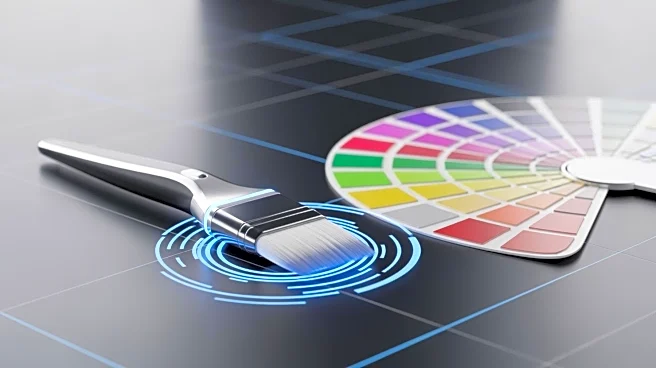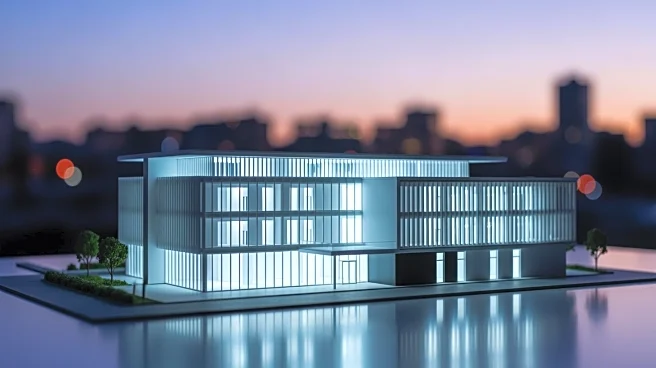What's Happening?
VibeSprint, a 48-hour creative experiment held at The Drum Live, showcased a shift in agency creativity from polished presentations to a more collaborative and prototype-driven approach. Key figures from the
event, including Laurel Burton, CEO at Instrument, and Skylar Jessen, senior strategist at Instrument, discussed the benefits of embracing discomfort and speed in the creative process. The experiment demonstrated how AI can amplify human creativity by providing teams with more time and creative headspace. The event highlighted five key reflections: discomfort as a catalyst for breakthroughs, the transition from pitch decks to prototypes, the value of messiness in collaboration, the importance of curiosity over rigid processes, and AI's role in enhancing rather than replacing human creativity.
Why It's Important?
The VibeSprint experiment signals a significant shift in the creative industry, emphasizing the importance of real-time collaboration and the integration of AI into creative processes. This approach challenges traditional methods that rely heavily on polished presentations and rigid processes, suggesting that agencies that adapt to this new model may thrive in the evolving landscape. By embracing AI, agencies can enhance experimentation and creativity, potentially leading to more innovative and effective campaigns. This shift could impact how agencies operate, encouraging a culture of speed, trust, and possibility, which may redefine client-agency relationships and the overall creative output.
What's Next?
As AI becomes more embedded in the creative process, agencies are expected to continue exploring ways to integrate these technologies into their workflows. The success of the VibeSprint experiment may inspire other agencies to adopt similar approaches, focusing on speed and collaboration. The challenge lies in transforming this one-off experiment into a standard practice within the industry. Agencies that successfully integrate AI and embrace this new model may gain a competitive edge, potentially leading to a broader industry shift towards more dynamic and innovative creative processes.
Beyond the Headlines
The shift towards a prototype-driven approach and the integration of AI in creative processes may have deeper implications for the industry. It could lead to a democratization of creativity, where hierarchies are flattened, and diverse voices are more easily heard. This approach may also foster a culture of continuous learning and adaptation, as agencies and creatives are encouraged to experiment and take risks. Additionally, the ethical considerations of AI in creativity, such as bias and the balance between human and machine input, will likely become more prominent as these technologies are further integrated into creative workflows.









